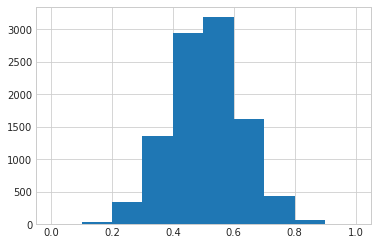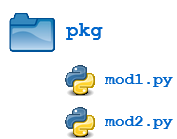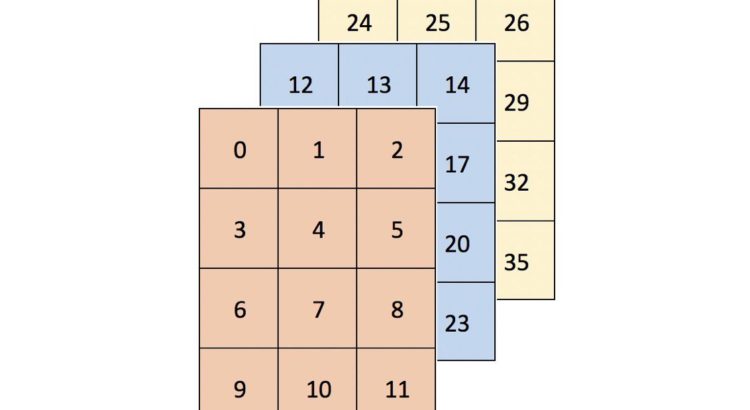Python is a high-level, interpreted scripting language developed in the late 1980s by Guido van Rossum at the National Research Institute for Mathematics and Computer Science in the Netherlands. The initial version was published at the alt.sources newsgroup in 1991, and version 1.0 was released in 1994. Python 2.0 was released in 2000, and the […]
Category: Data Analytics
The Ultimate Guide to Data Classes in Python 3.7
One new and exciting feature coming in Python 3.7 is the data class. A data class is a class typically containing mainly data, although there aren’t really any restrictions. It is created using the new @dataclass decorator, as follows: from dataclasses import dataclass @dataclass class DataClassCard: rank: str suit: str Note: This code, as well […]
Python 3’s f-Strings: An Improved String Formatting Syntax (Guide)
As of Python 3.6, f-strings are a great new way to format strings. Not only are they more readable, more concise, and less prone to error than other ways of formatting, but they are also faster! By the end of this article, you will learn how and why to start using f-strings today. But first, […]

BankClassify: simple automatic classification of bank statement entries
This is another entry in my ‘Previously Unpublicised Code’ series – explanations of code that has been sitting on my Github profile for ages, but has never been discussed publicly before. This time, I’m going to talk about BankClassify a tool for classifying transactions on bank statements into categories like Supermarket, Eating Out and Mortgage automatically. It is an […]
Operator and Function Overloading in Custom Python Classes
If you’ve used the + or * operator on a str object in Python, you must have noticed its different behavior when compared to int or float objects: >>> 1 + 2 # Adds the two numbers 3 >>> ‘Real’ + ‘Python’ # Concatenates the two strings ‘RealPython’ >>> 3 * 2 # Gives the […]

Pure Python vs NumPy vs TensorFlow Performance Comparison
Python has a design philosophy that stresses allowing programmers to express concepts readably and in fewer lines of code. This philosophy makes the language suitable for a diverse set of use cases: simple scripts for web, large web applications (like YouTube), scripting language for other platforms (like Blender and Autodesk’s Maya), and scientific applications in […]

Regression of a Proportion in Python
I frequently predict proportions (e.g., proportion of year during which a customer is active). This is a regression task because the dependent variables is a float, but the dependent variable is bound between the 0 and 1. Googling around, I had a hard time finding the a good way to model this situation, so I’ve […]

Python Metaclasses
The term metaprogramming refers to the potential for a program to have knowledge of or manipulate itself. Python supports a form of metaprogramming for classes called metaclasses. Metaclasses are an esoteric OOP concept, lurking behind virtually all Python code. You are using them whether you are aware of it or not. For the most part, […]

Python Exceptions: An Introduction
A Python program terminates as soon as it encounters an error. In Python, an error can be a syntax error or an exception. In this article, you will see what an exception is and how it differs from a syntax error. After that, you will learn about raising exceptions and making assertions. Then, you’ll finish […]
Blogroll
I really enjoy reading blogs. That seems to be a slightly outdated view, as many people have moved over to using Twitter exclusively, but I like being able to follow everything that a specific person writes, and seeing mostly long-form articles rather than off-the-cuff comments. Back in the day, when blogs were really popular, every […]
Pipenv: A Guide to the New Python Packaging Tool
Pipenv is a packaging tool for Python that solves some common problems associated with the typical workflow using pip, virtualenv, and the good old requirements.txt. In addition to addressing some common issues, it consolidates and simplifies the development process to a single command line tool. This guide will go over what problems Pipenv solves and […]
Python 3’s pathlib Module: Taming the File System
Have you struggled with file path handling in Python? In Python 3.4 and above, the struggle is now over! You no longer need to scratch your head over code like: >>> path.rsplit(”, maxsplit=1)[0] Or cringe at the verbosity of: >>> os.path.isfile(os.path.join(os.path.expanduser(‘~’), ‘realpython.txt’)) In this tutorial, you will see how to work with file paths—names of […]

Python Modules and Packages – An Introduction
This article explores Python modules and Python packages, two mechanisms that facilitate modular programming. Modular programming refers to the process of breaking a large, unwieldy programming task into separate, smaller, more manageable subtasks or modules. Individual modules can then be cobbled together like building blocks to create a larger application. There are several advantages to […]
Working With JSON Data in Python
Since its inception, JSON has quickly become the de facto standard for information exchange. Chances are you’re here because you need to transport some data from here to there. Perhaps you’re gathering information through an API or storing your data in a document database. One way or another, you’re up to your neck in JSON, […]

Look Ma, No For-Loops: Array Programming With NumPy
It is sometimes said that Python, compared to low-level languages such as C++, improves development time at the expense of runtime. Fortunately, there are a handful of ways to speed up operation runtime in Python without sacrificing ease of use. One option suited for fast numerical operations is NumPy, which deservedly bills itself as the […]